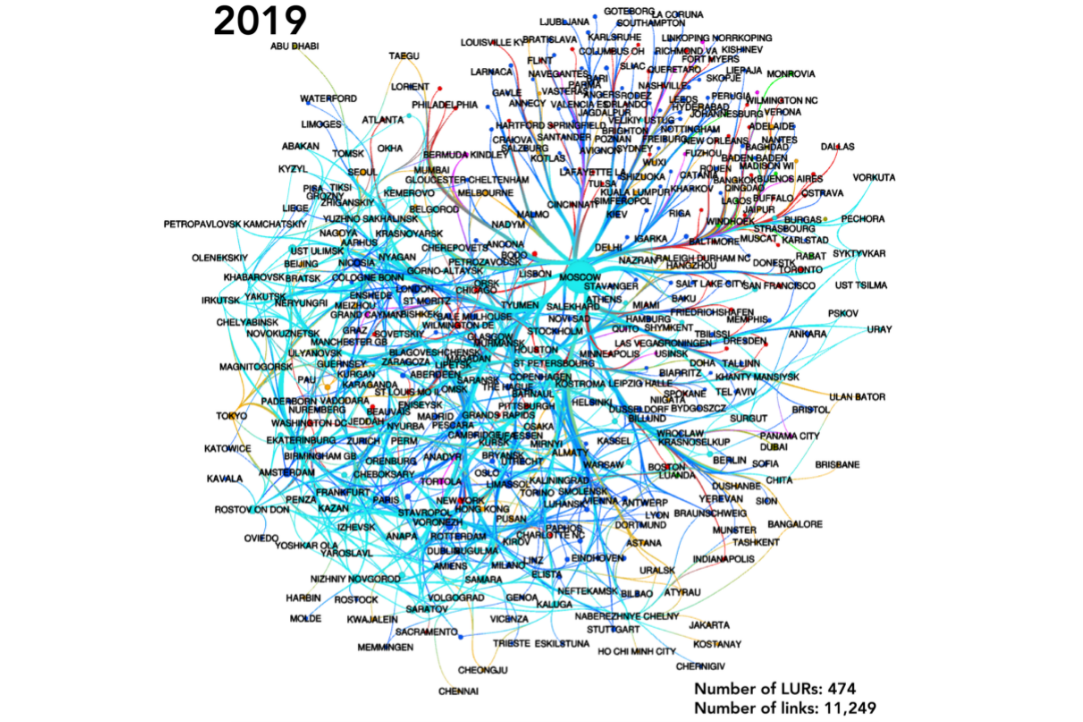- A
- A
- A
- ABC
- ABC
- ABC
- А
- А
- А
- А
- А
- HSE University
- Faculty of Geography and Geoinformation Technology
- News
- The positions of Russian cities in global economic networks have declined, but their internationalization has increased despite the economic sanctions of 2014
-
Faculty
-
Educational Programmes
Geography of Global Changes and Geoinformation Technology
Spatial Data and Applied Geoanalytics
Low Carbon Development
 Атлас изменений окружающей среды - Кыргызская Республика (Atlas of Environmental Change - Kyrgyz Republic)
Атлас изменений окружающей среды - Кыргызская Республика (Atlas of Environmental Change - Kyrgyz Republic)
Medvedev A., Alekseenko N., Kuramagomedov B. et al.
United Nations Environment Programme, 2025.
Solomina O., Matskovsky V.
Palaeogeography, Palaeoclimatology, Palaeoecology. 2025. No. 666.
In bk.: Reference Module in Earth Systems and Environmental Sciences. Oxford: Elsevier, 2025. P. 1-11.
Колосов В. А., Zotova M.
Published online. 10.1080/14650045.2021.1952184. Taylor and Francis, 2021

The positions of Russian cities in global economic networks have declined, but their internationalization has increased despite the economic sanctions of 2014

The study contributes to the debate about the impact of international shocks on the integration of national city systems into global economic networks. The scientists studied how the crisis in Ukraine and the subsequent 2014 economic sanctions against Russia affected the position of Russian cities in global economic networks.
Using worldwide data on the corporate networks of the largest multinational companies and their subsidiaries for the period from 2010 to 2019 to create intercity connections both at the global and national levels, scientists have shown how the positions of Russian cities have changed over this period.
The study shows that although the positions of Russian cities in the global network have declined (with an overall decline in connections between Russian cities), their internationalization has increased, despite economic sanctions. The decrease in the interconnectedness of cities was mainly related to intranational linkages between Russian cities, which could explain the growing inter-regional inequality in Russia observed by many scientists. In addition, contrary to the main arguments of the global city concept, among the cities most resilient to crises were not only the largest and most diversified cities, as one would expect in such times of uncertainty, but also some highly specialized small cities.

Mikhail Rogov
In the future, we will study the economic resilience of Russian cities through the prism of a multi-level approach. This approach involves the study of the city at three levels: the macro level (the evolution of the city's position in global economic networks), the meso level (the city as an economic unit) and the micro level (the adaptation of urban economic agents - firms, consumers, local authorities - to crisis conditions).
Mikhail Rogov
- About
- About
- Key Figures & Facts
- Sustainability at HSE University
- Faculties & Departments
- International Partnerships
- Faculty & Staff
- HSE Buildings
- Public Enquiries
- Studies
- Admissions
- Programme Catalogue
- Undergraduate
- Graduate
- Exchange Programmes
- Summer Schools
- Semester in Moscow
- Business Internship
-
https://elearning.hse.ru/en/mooc/
Massive Open Online Courses
-
https://www.hse.ru/en/visual/
HSE Site for the Visually Impaired
-
http://5top100.com/
Russian Academic Excellence Project 5-100
- © HSE University 1993–2025 Contacts Copyright Privacy Policy Site Map
- Edit


